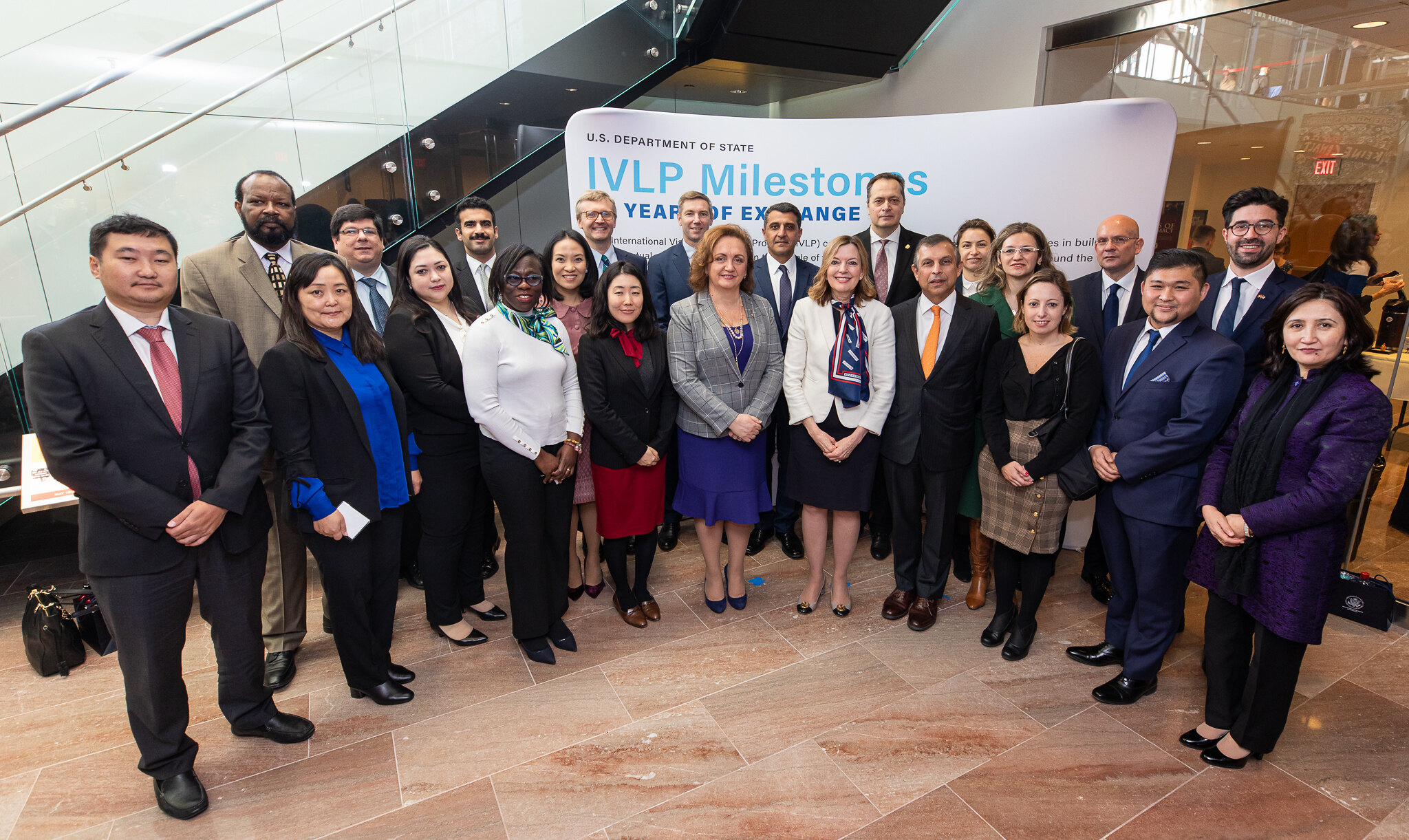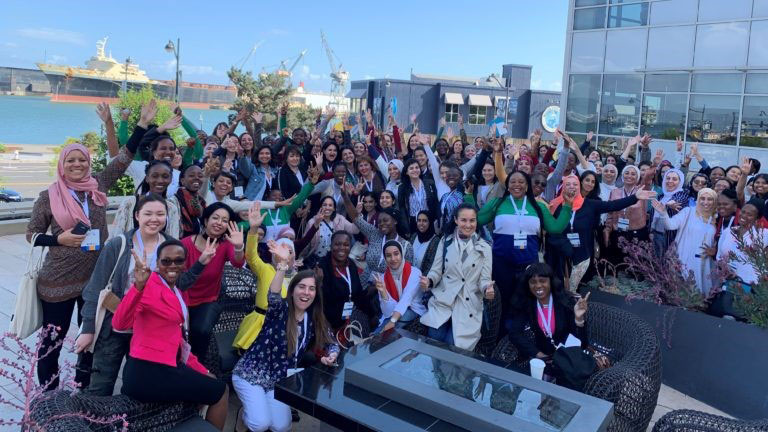Throughout 2020, the U.S. Department of State is celebrating the 80th anniversary of its flagship professional exchange program, the International Visitor Leadership Program (IVLP). With its roots firmly planted in the World War II era, the IVLP has grown to include over 225,000 alumni and continues to build vital linkages between citizens in the United States and emerging leaders throughout the world.
The 80th anniversary celebrations began on January 16, 2020 with a kick-off event at the National Museum of American Diplomacy that highlighted how the State Department is advancing foreign policy through the IVLP. Two program alumni gave remarks, Albanian Ambassador Floreta Faber and Ambassador Ashok Kumar Mirpuri from Singapore, on how their IVLP experiences continue to positively impact their diplomatic work today.
The 80th anniversary launch continues this week with the Global Ties National Meeting, a national meeting in Washington, D.C. hosted by a private sector partner of the State Department, Global Ties U.S. The event will convene 84 nonprofit organizations to discuss global competence and how to best engage citizens from U.S. communities with IVLP participants from around the world.
The #FacesofExchange Initiative
In addition to training and consultations during the January 2020 meeting, the members will celebrate the #FacesofExchange initiative, designed to highlight 80 accomplished alumni, their lives, and the impact their exchange program brought to the global community.
Many world-renowned leaders were once participants in the IVLP, including Margaret Thatcher and Tony Blair of the United Kingdom, Nicolas Sarkozy of France, Felipe Calderon of Mexico, F.W. De Klerk of South Africa, Indira Gandhi of India, and Anwar Sadat of Egypt. These incredible alumni join thousands of current and emerging leaders who utilize skills and information gained during their IVLP experience to build a more safe, secure, and prosperous world.
See the 80 alumni and how they are making a difference in the world by following the hashtag #FacesofExchange on Facebook, Instagram and Twitter or by visiting https://eca.state.gov/facesofexchange throughout 2020. The IVLP continues to play a critical role in U.S. foreign policy and provides an opportunity for the next generation of leaders to gain firsthand experience in the United States.










